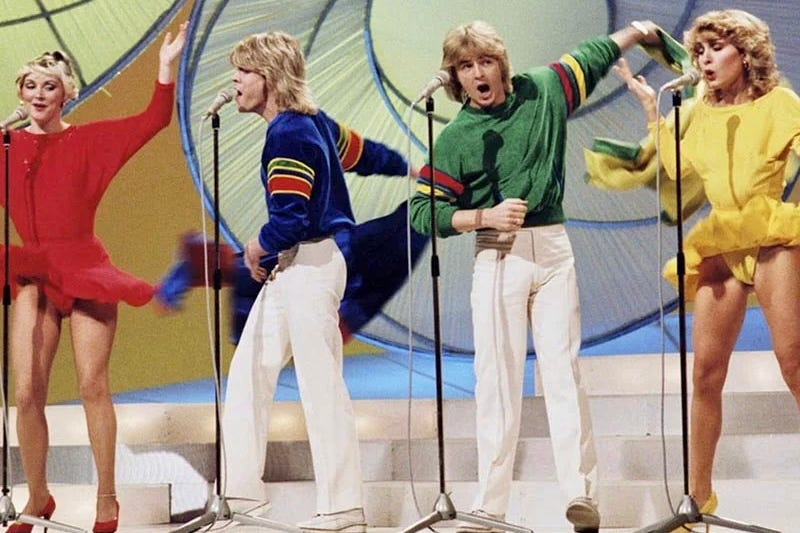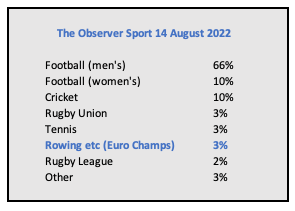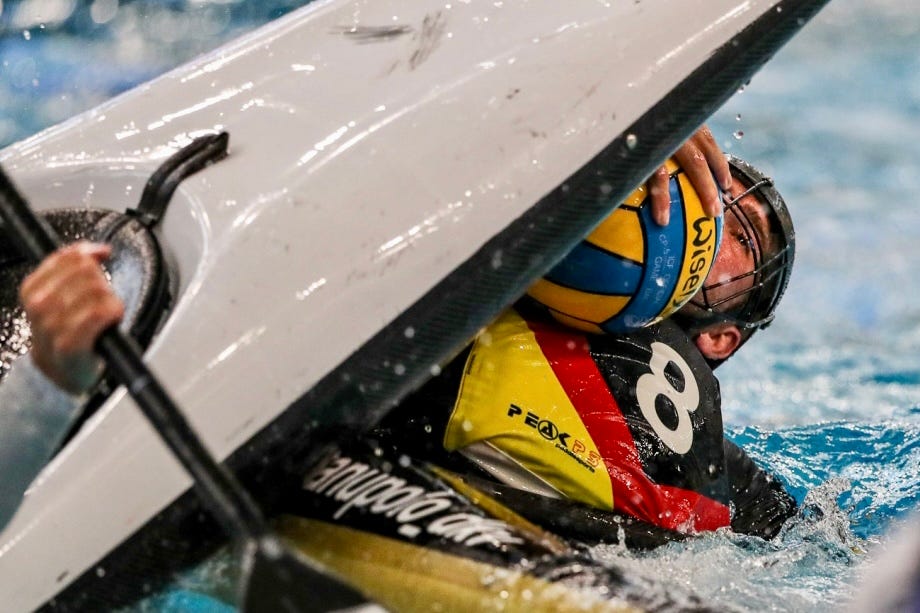Just what does constitute a sport? Break(danc)ing will debut in Paris 2024. So how about singing with a dose of choreographed body-poppery? The unlikely combination of Vladimir Putin and Sam Ryder is bringing Eurovision to the United Kingdom in 2023. Seven cities - cut from twenty - are vying for hosting rights. The bread and circuses approach to staging big sporting events applies here too. Roll up, roll up!
Regular Sport inc. readers will know my scepticism about the economic benefits of organising major sports competitions. Their bloated costs are usually justified in advance by finger-in-the-air calculations of competitor and spectator spending and by post event analysis that ascribes heroic values to this injection of tourist dollars. Often set against chunky budget over-runs. Suspiciously, the maths always seems to favour making a bid and then, if successful, closing eyes and sprinting towards the opening ceremony almost regardless of cost. An immovable deadline usually loosens the backers’ purse-strings.
In recent times, however, greater emphasis has been placed on the non-monetary benefits of hosting. These can include improved sporting and other infrastructure in a city - think of the new Sandwell Aquatic Centre in Smethwick and upgraded Alexander Stadium for athletics left behind by the Commonwealth Games; the promotion of minority rights and opportunities - disability sport to the fore; and ‘soft power’ influence for a nation on the global stage. Check out ‘Win friends, buy influence’ from a Sport inc. last December for this geopolitical factor here.
I’m very much in favour of these justifications, although each is replete with the risk of being ascribed spurious monetary value to fill an Excel spreadsheet. And so far history suggests that watching elite sportspeople perform doesn’t translate easily to a nation becoming more active (with the benefit of lowered healthcare costs) either.
Last week, though, I was encouraged by a blog from UK Sport’s director of events, Simon Morton, for insidethegames that squares exactly with my favourite reason for bidding for tournaments: simply giving people the chance to have a bloody fantastic time, either in venue, on their sofa, or just breathing the air of a host city with a spring in their step. Morton puts it more soberly:
“It is accepted that you can attend a concert or show, appreciate it at face value, and embrace the positive mental wellbeing it generates. Big sport is outstanding at creating shared human moments at scale, and such feelings go beyond simple joy and elation. Enhanced feelings of purpose, social cohesion, and civic pride need to be better understood and better valued as social outcomes of hosting big sporting events.”
He says that the arts don’t have the same hang-up as sport about valuing their emotional effect. I sense a lot of analysis of social impact coming on. Just so long as the data crunchers aren’t asked to solve the age-old and, clearly, insoluble problem of measuring and then ascribing monetary value to happiness.
I’m no great Eurovision junkie, but I’m already enjoying the hyperbole being served up by the seven UK cities still in the running for 2023. Aside from expressions of solidarity with Ukraine, and reminders of track records at organising events, social media posts have gone big on euphoria and reputations for partying. As this is a sports blog, it seems only right to highlight one with a footballing theme from the mayor of West Yorkshire, Tracy Brabin:
“Leeds & Leeds & Leeds & Leeds”
Won’t make us fitter, or generate much in the way of tourist dollars, or help the BBC’s bruised finances, or leave a physical legacy - but Eurovision will give us all a fillip. Even inveterate curmudgeons will be given something new to enjoy moaning about. A useful reminder next time any sport’s governing body contemplates bidding to stage a major competition. Add in a big bucks fizzy dose of feelgood X factor.
In the ring in Munich (and Rome)
Talk about divergent editorial policies. BBC television is all in for the nine simultaneous European Championships operating under the Munich 2022 banner and their five aquatic cousins in Rome. On Sunday, for example, there was a continuous twelve hours of coverage across the broadcaster’s two main terrestrial channels. That’s a lot of overtime for presenters Clare Balding and Jeanette Kwakye.
On the same day - to pick a major journal not quite at random - The Observer was one of the few newspapers to carry reportage from a correspondent on the ground in either of the two host cities. A piece on the rowing carried a sprinkling of gymnastics, BMX and swimming in its tail. Overall the story comprised a modest 3% of the sports section. But at last it was something, and very welcome too. The full breakdown of The Observer column inches was as follows:
One of the very few British journalists in Munich tells me that the combined champs are “superb” and athlete feedback has been “off the scale positive”. Football fan as I am, I can’t help wondering whether the ever-shrinking coverage of other sports in the ‘print’ media isn’t bombarding readers with footy rather than genuinely reflecting their breadth of interests.
Beckenham beckons
Yes, I’m biased, but putting my Crystal Palace FC allegiance as much to one side as I’m able, I can still highly recommend C4’s Football Dreams: The Academy which goes behind the scenes at the club’s new Category 1 facility in Beckenham to follow the fortunes of talented youngsters aspiring to Premier League stardom. It’s on Thursday evenings, with last week’s opening episode available on All 4. Tune in for an honest representation of what Palace chairman Steve Parish describes in the opener as football’s Darwinian system.
Canoe be serious?
My man at the recent World Games in Alabama came back with a new sport to add to his favourites list: canoe polo. You couldn’t make it up, could you? Well someone did, and the result might appeal to anyone who likes a healthy dose of contact in their sport. I was sceptical until I had a look online here. Beats a Tuchel-Conte handshake.






